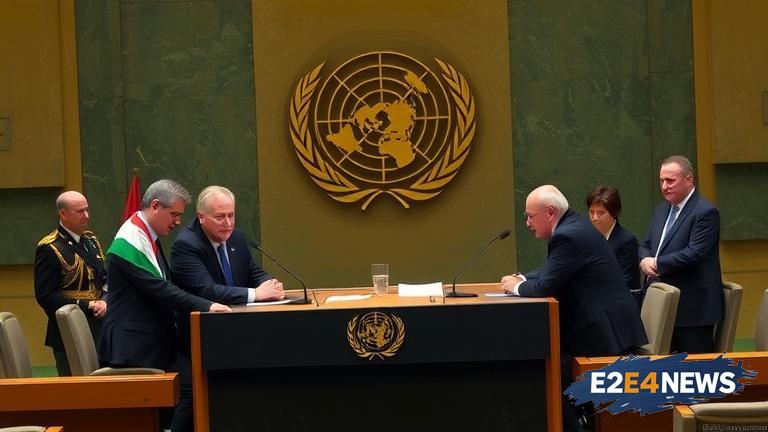The Israeli-Palestinian conflict has been a longstanding issue, with the Gaza Strip being a major point of contention. Recently, the situation in Gaza has escalated, with violence and bloodshed plaguing the region. In response to the crisis, ministers from around the world have gathered at the United Nations to discuss possible solutions. A key topic of discussion has been the two-state solution, which involves the creation of an independent Palestinian state alongside the state of Israel. This solution has been proposed as a way to bring peace and stability to the region. The two-state solution has been a longstanding goal of the international community, with many countries and organizations supporting its implementation. However, the path to achieving this goal has been fraught with challenges and obstacles. One of the main challenges has been the issue of settlements, with Israel continuing to build and expand settlements in the West Bank and East Jerusalem. The international community has widely condemned these settlements, viewing them as a major obstacle to peace. Despite these challenges, many world leaders remain committed to the two-state solution. At the UN, ministers from countries such as the United States, the United Kingdom, and France have expressed their support for the two-state solution. They have also called on both Israel and the Palestinians to take steps to reduce tensions and create an environment conducive to peace. The Palestinian Authority has also expressed its support for the two-state solution, with President Mahmoud Abbas calling for an end to the occupation and the establishment of an independent Palestinian state. However, the Israeli government has been more skeptical, with some officials expressing doubts about the feasibility of the two-state solution. The situation in Gaza has also been a major point of discussion, with many countries calling for an end to the blockade and the easing of restrictions on the movement of people and goods. The humanitarian situation in Gaza is dire, with many residents lacking access to basic necessities such as food, water, and healthcare. The international community has called for an end to the violence and the protection of civilians, particularly women and children. The UN has also played a key role in responding to the crisis, with agencies such as UNRWA providing humanitarian aid to those affected. As the situation in Gaza continues to smolder, the international community remains committed to finding a solution to the conflict. The two-state solution remains the most widely supported option, but its implementation will require significant efforts from both Israel and the Palestinians. The world will be watching closely as the situation develops, with many hoping for a peaceful resolution to the conflict. The Gaza crisis has also highlighted the need for a more comprehensive approach to the conflict, one that addresses the root causes of the violence and instability. This includes addressing issues such as poverty, unemployment, and lack of access to education and healthcare. The international community must also work to support the Palestinian people, who have been affected by the conflict for decades. This includes providing humanitarian aid, supporting economic development, and promoting human rights. Ultimately, the goal of the two-state solution is to create a lasting and just peace, one that recognizes the rights and dignity of both Israelis and Palestinians. This will require significant efforts and compromises from both sides, but the reward will be a more stable and peaceful region.
